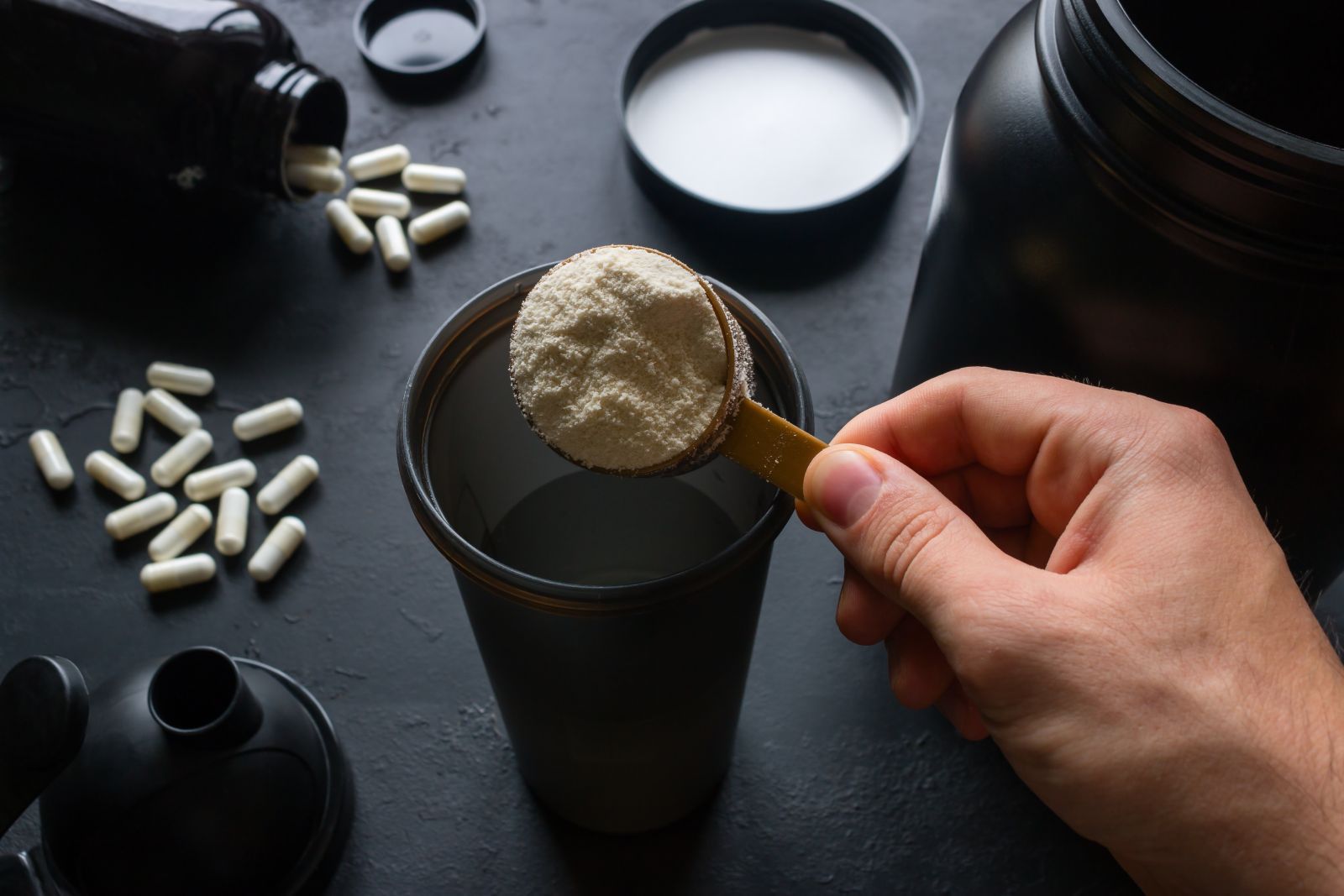The whole truth about light products

Light products are a wide assortment of foods that consumers who care about their health and usually follow a weight-loss diet are willing to reach for. Overweight and obese people whose main goal is to reduce excessive weight use various ways to achieve their dream figure, so they often fall for various marketing tricks. So let's find out what light products are, whether they are healthy and whether they are worth including in the diet.
- What are light products?
- Light products - what are they available in stores?
- Are light products less caloric?
- Light products - what is substituted for sugar?
- Light products - who can benefit from them?
- Is it worth buying light products?
What are light products?
When shopping in supermarkets and discount grocery stores, it is very common to find food items on the shelves that have the label light or light in their name. They are usually associated with healthy and easily digestible products that are low in fat, sugar and calories. This is indeed true for some light products, but not every food product labeled as light is characterized by its good composition. According to the Regulation of the European Parliament and of the Council of December 20, 2006, in order for a manufacturer to make a light claim on the label of a food product, the product must meet strict requirements, which were established in Regulation (EC) No. 1924/2006. According to the European Union's findings , light products are only those products that contain at least 30% less sugars (carbohydrates) or fat, and therefore calories, compared to traditional products available in grocery stores.
Light products - what are they available in stores?
The range of light products available in supermarkets and smaller discount stores is expanding more and more each year. Among the most common light products in grocery stores today are:
-
Yogurts (e.g. Greek),
-
Yellow cheeses (e.g., Royal, Gouda, Rice Edam),
-
Soft cheeses (e.g. Camembert),
-
Mozzarella cheeses,
-
Cream cheeses,
-
Cottage cheese,
-
Country cheeses,
-
Condensed milk,
-
Soft margarines (for spreading on bread),
-
Coconut milk,
-
Mayonnaises,
-
Ketchups,
-
Puff pastry,
-
Popcorn,
-
Bars,
-
Chocolates,
-
Chocolate and nut creams,
-
Roasted peanuts.
Are light products less caloric?
As it turns out, not all light products are lower in calories than their traditional counterpart. In some situations, light products may have reduced fats, while increased sugars (carbohydrates) and, as a result, similar calories, which is a dangerous trap for anyone looking to lose weight or maintain a healthy body weight. Manufacturers of light foods quite often replace fats with carbohydrates, such as, for example, starch, maltodextrins, cellulose and polydextrose, which allows light products to be thickened in a similar way to fat. The results of some studies have shown that light products with reduced fat often contain higher amounts of carbohydrates. This means that some people who regularly reach for reduced-fat light products may actually be swapping fat for sugar, which can also have adverse effects on human health, especially when consumed in excess.
It also happens that the use of carbohydrates is insufficient to achieve the right consistency in a light product, or it simply becomes unprofitable for the manufacturer. When this happens, thickeners such as locust bean gum (E410), guar gum (E412) and xanthan gum (E415) are used. Because fat is a flavor carrier, many reduced-fat light products tend to be less palatable according to consumers. Therefore, light food manufacturers may sometimes add flavor enhancers to compensate for the lower fat content of light products.

Light products - what is substituted for sugar?
Low- or no-sugar light products are products in which food manufacturers have clearly reduced the content of sucrose (sugars), and in its place have used other sweeteners that are responsible for the sweet and attractive taste of these products. Manufacturers of light foods typically use artificial sweeteners (e.g. aspartame, acesulfame K, sucralose, saccharin) or sugar alcohols, or polyols (e.g. xylitol, erythritol, maltitol, sorbitol, lactitol). Compared to sucrose, these sweeteners provide small or trace amounts of calories, and do not contribute to a significant increase in blood glucose levels or the development of tooth decay. However, it should be borne in mind that aspartame contains phenylalanine, an essential amino acid that cannot be consumed by people with phenylketonuria. And polyols consumed in excessive amounts can have a laxative effect, while acesulfame K and saccharin can cause a bitter, metallic aftertaste in the mouth after consumption.
Light products - who can benefit from them?
Light products can be consumed by basically anyone, especially overweight and obese people who are concerned about effectively reducing excess body weight. And light products with reduced sugar content or completely without added sugar are dedicated especially to people with insulin resistance and diabetes. In practice, however, light products are not always clearly lower in calories and actually better in composition than their traditional counterparts. Therefore, it is worth carefully reading the composition of each light product available on the label before deciding to buy it and include it in your diet.
Is it worth buying light products?
Regular consumption of light products does not necessarily help with weight loss, especially when it comes to highly processed products (e.g. chips, cookies, bars, fruit yogurt). Studies have shown that frequent inclusion of sugar-reduced light products (containing artificial sweeteners in their place) in the diet does not contribute to weight loss or increase body fat stores. Light products that are most noteworthy are all kinds of cheeses with reduced fat content, mainly saturated fatty acids that increase total cholesterol and LDL fraction cholesterol in the blood.
Sources:
-
Toews I, Lohner S, Küllenberg de Gaudry D, et al: Association between intake of non-sugar sweeteners and health outcomes: systematic review and meta-analyses of randomised and non-randomised controlled trials and observational studies. BMJ. 2019 Jan 2;364:k4718.
-
Miller PE, Perez V.: Low-calorie sweeteners and body weight and composition: a meta-analysis of randomized controlled trials and prospective cohort studies. Am J Clin Nutr. 2014 Sep;100(3):765-77.
-
Gallagher AM, Ashwell M, Halford JCG, et al: Low-calorie sweeteners in the human diet: scientific evidence, recommendations, challenges and future needs. A symposium report from the FENS 2019 conference. J Nutr Sci. 2021 Jan 25;10:e7.
-
Jeżewska-Zychowicz M, Jeznach M, Kosicka-Gębska M.: Consumers' willingness to consume light foods. BROMAT. CHEM. TOXICOL. - XLV, 2012, 3, 603-607.
-
Nguyen PK, Lin S, Heidenreich P.: A systematic comparison of sugar content in low-fat vs regular versions of food. Nutr Diabetes. 2016 Jan 25;6(1):e193.
 ⮜ Previous article
⮜ Previous article
Which overnight protein?
 Next article ⮞
Next article ⮞